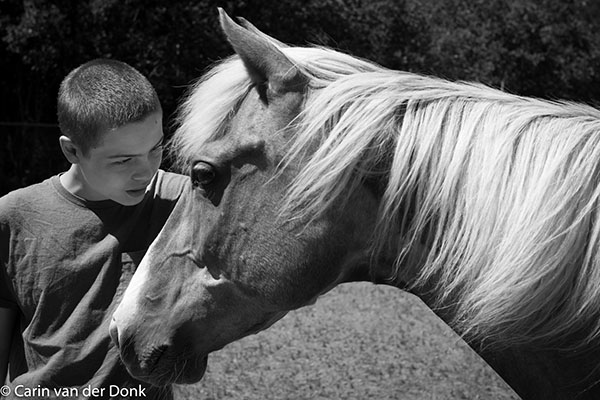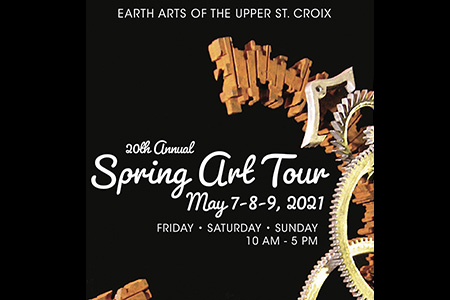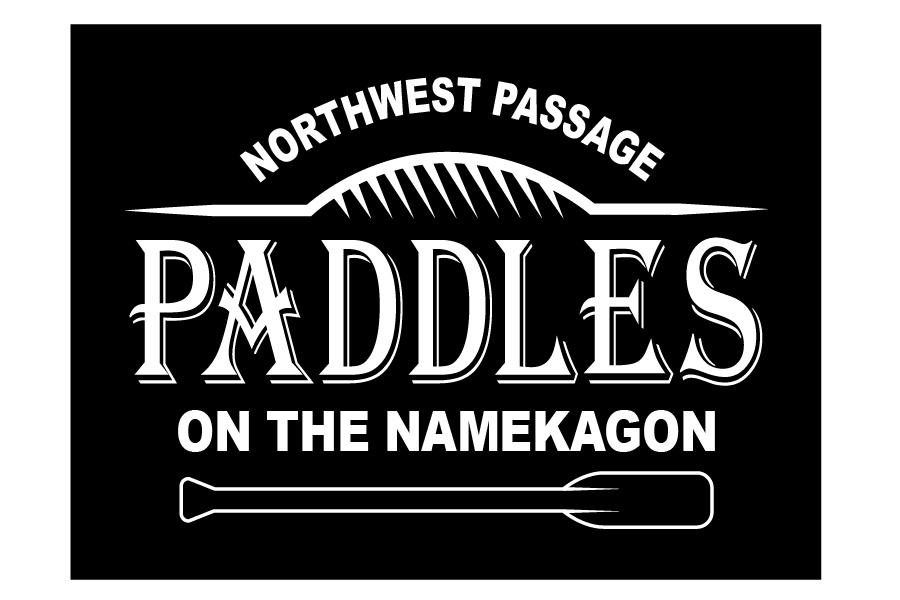USING METAPHOR TO FACILITATE CHANGE
The warm smell of hay and the sound of hoof beats will once again greet you if you visit the back lot of the Northwest Passage Gallery in Webster. Equine Assisted Growth and Learning Association (EAGALA) sessions have resumed for the warm weather season. EAGALA facilitators Angela Fredrickson and Shannon Brice work on a weekly basis with small groups, families, and individuals from each of the treatment programs at Northwest Passage.
The youth in the treatment programs have been working with the equine therapy team since the first week of May. They have been exploring their path to sobriety, learning about relationship building, discovering the role of judgment in their lives, and working to find harmony in their living groups with the help of the four-legged practitioners.
This year a new horse has found her way onto the team. Her late-in-life change in career seems to be an excellent fit as her open, expressive manner has drawn in many residents. We are early in the season and she has already been described as “the most beautiful animal I have ever seen” and “my best friend.” Alternatively, she has also demonstrated the art of being aware of danger and the complexity of conflict as she works to reflect what has entered the arena space.
What’s up with using horses in therapy anyway?
The use of horses through the EAGALA model is experiential. This means that participants learn about themselves and others by participating in activities with the horses and then processing or discussing thoughts, beliefs, behaviors, and patterns. Through active, solution-focused participation, clients can tell their own story and begin to create metaphor that can facilitate change in their lives.
Horses are large and powerful animals which draw our attention. It requires a level of confidence to interact with them and working to overcome fear in this work can be a useful intervention. Additionally horses are naturally social animals and are extraordinarily sensitive to non-verbal communication. The horses’ responses give us information that can bring awareness of problem spots in our lives and can help motivate change by being an emotionally safe, external symbol of relationships. Their responses to us can feel quite familiar to the responses we experience from those in our day-to-day lives making work with horses prime for the creation of metaphor.
Angela Fredrickson, LCSW – Clinical Director
Study on referential communication in horses:
http://www.thehorse.com/articles/37681/study-confirms-horses-talk-to-human-handlers
Link to EAGALA website
Northwest Passage is committed to providing a diverse set of therapy opportunities to our kids. We are happy to be able to provide Equine Therapy sessions to our kids as an alternative way to open up and communicate about themselves and their lives. Those of us who have had an opportunity to experience the safety and comfort of Equine Therapy, can say just how special this is. Thank you to Shannon and Angela for making this happen. To learn more about our Equine Therapy sessions, please check out past articles on the subject here and here.
SHARE




Recent Comments